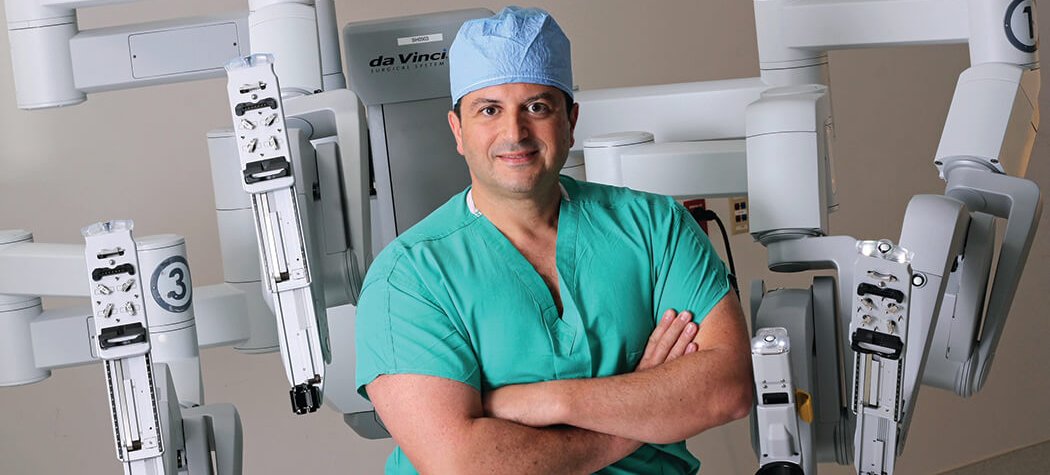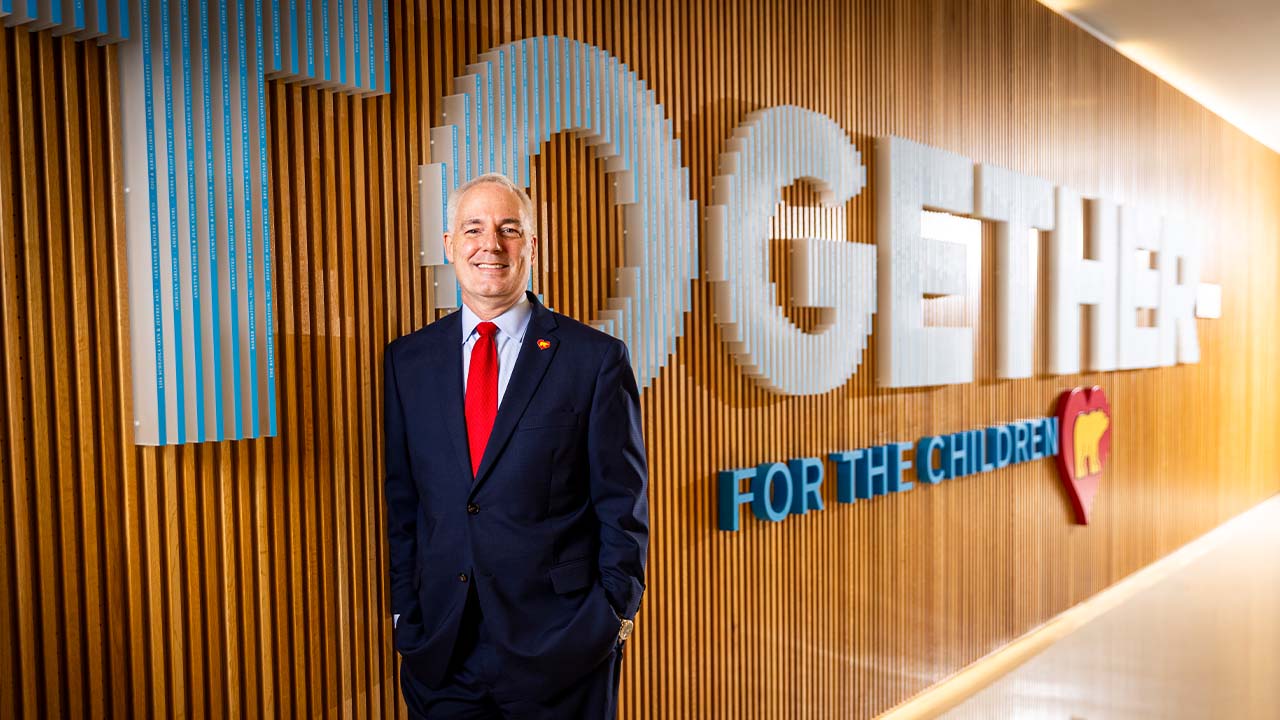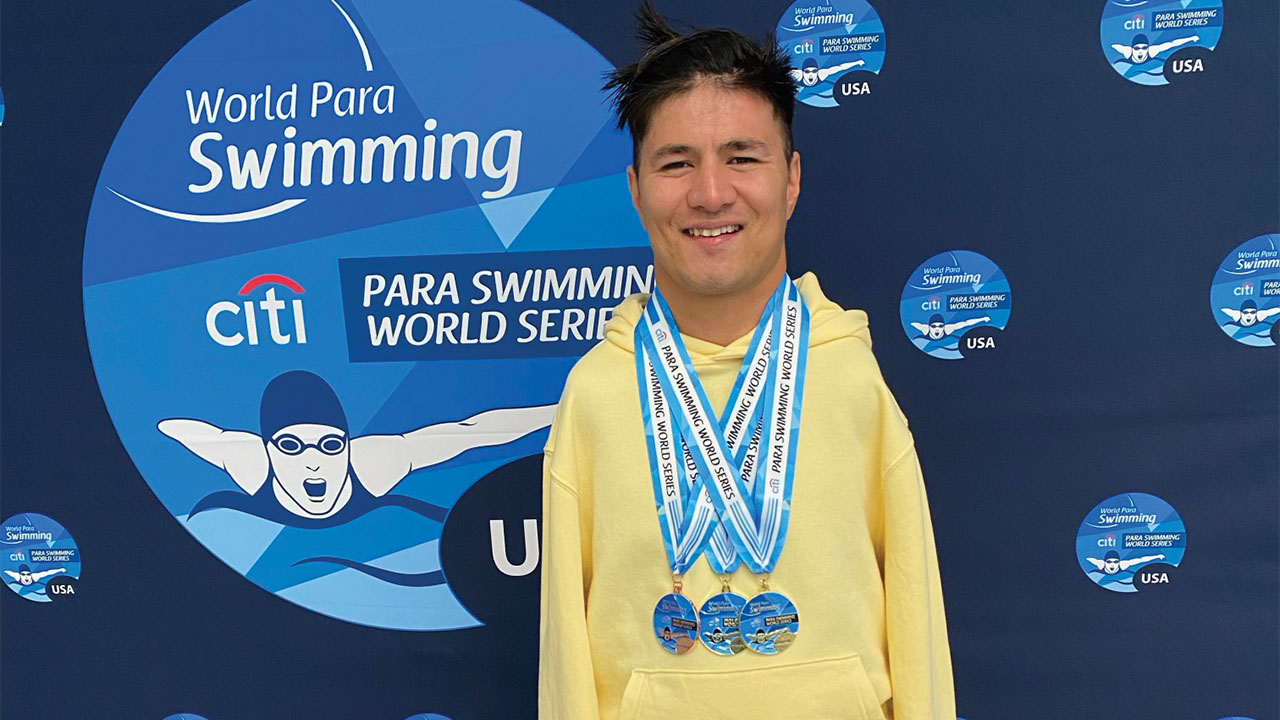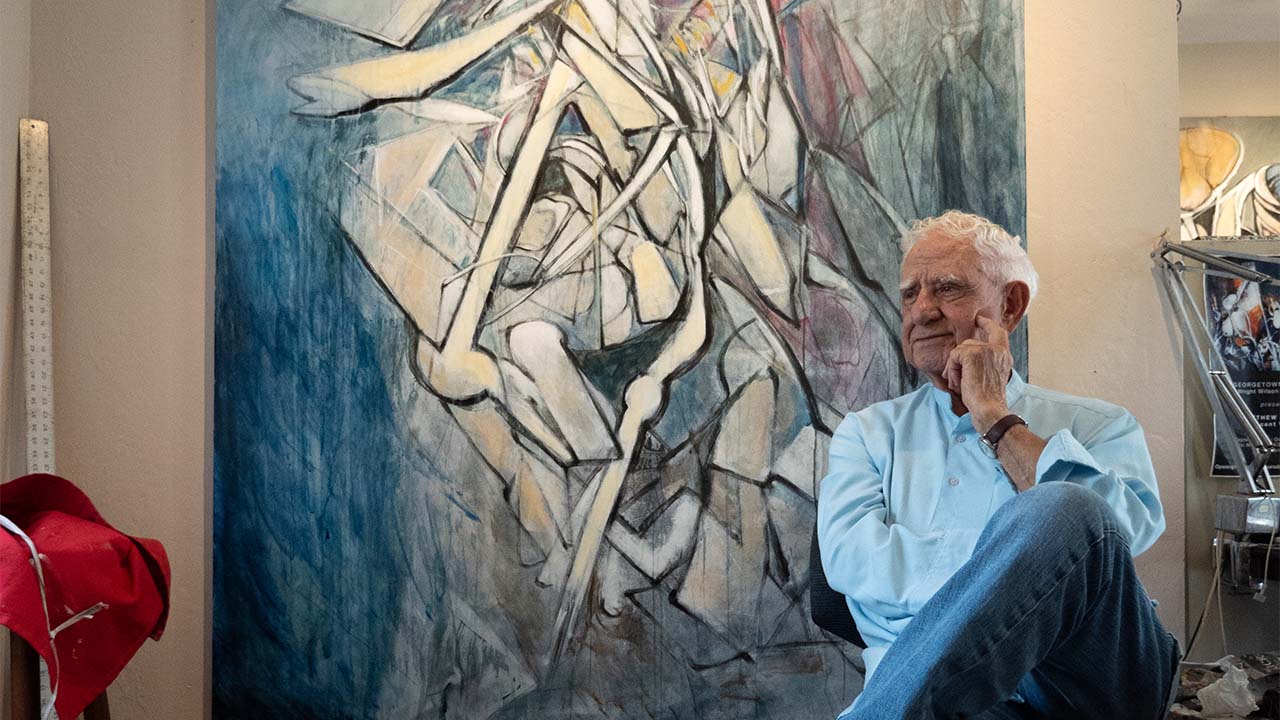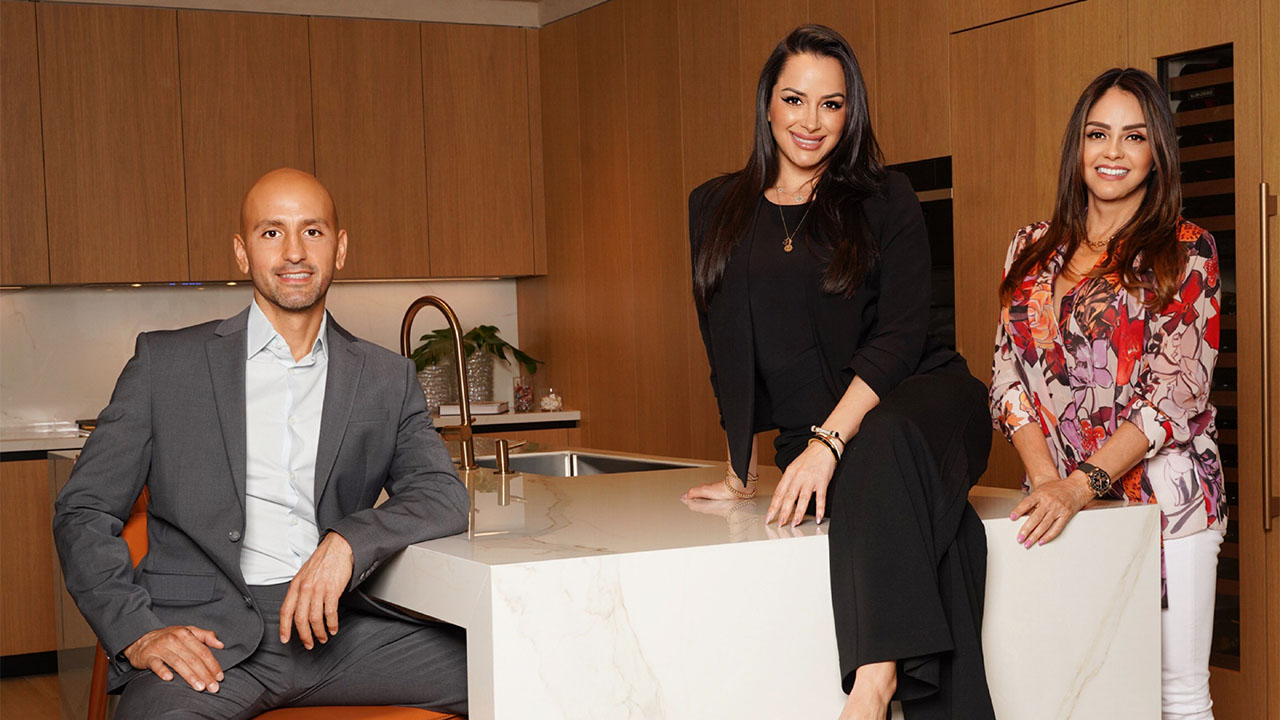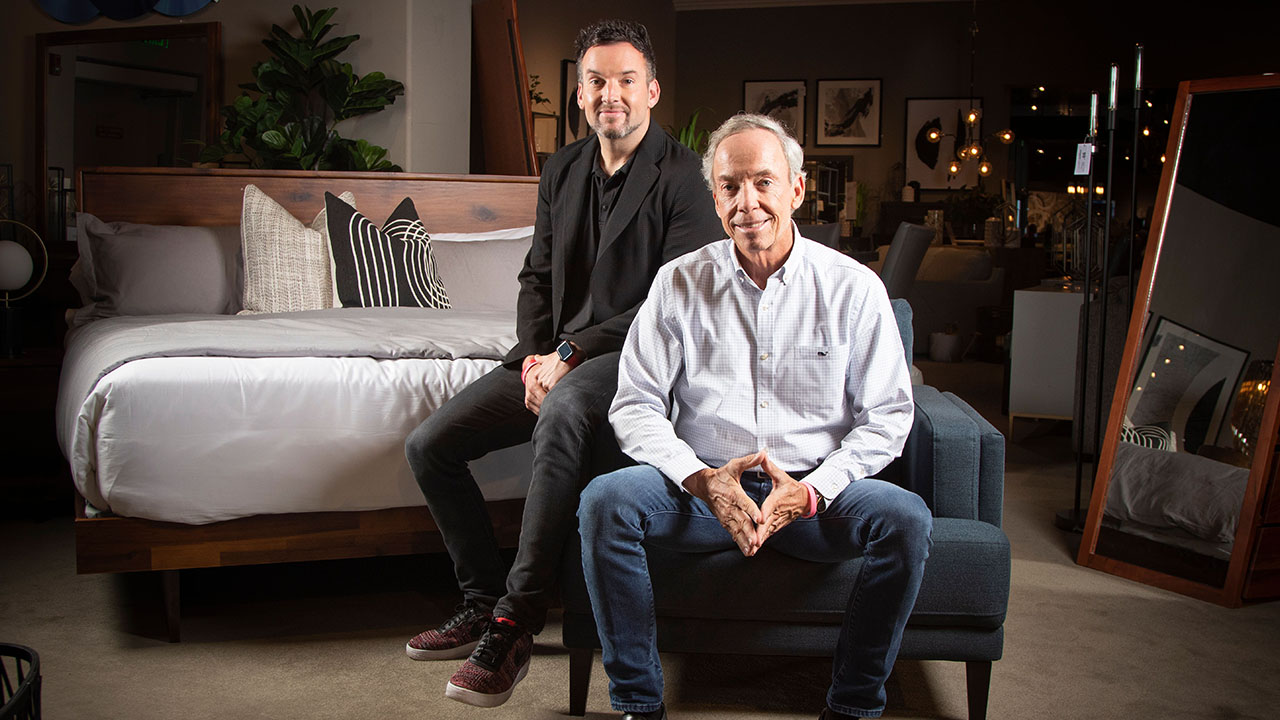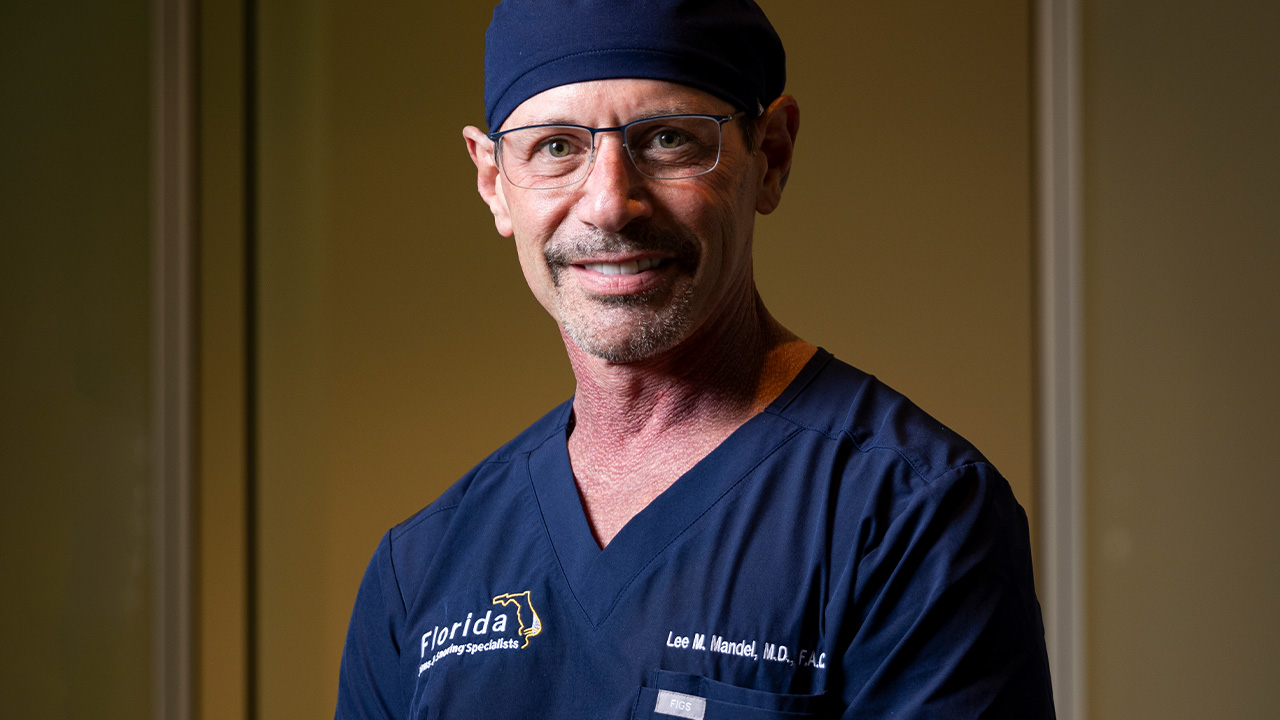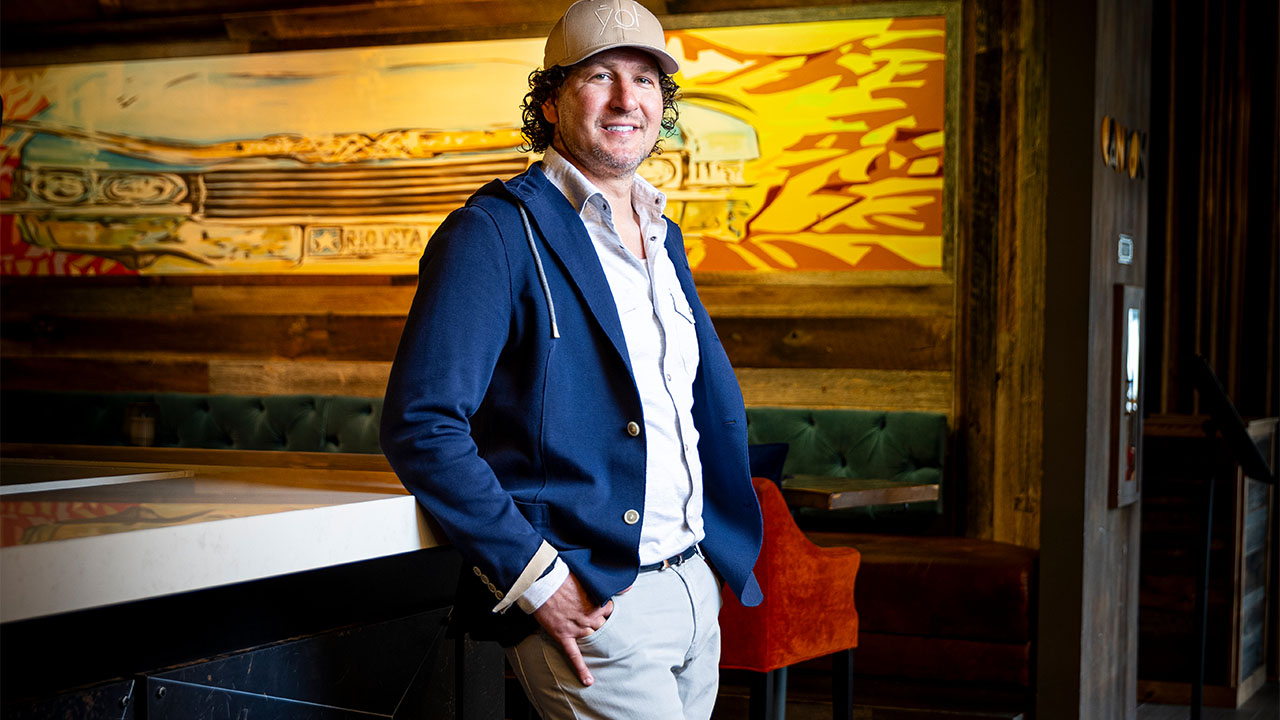By the time he was 15, Anthony Gonzalez knew what his gifts were and how he could use them. His interests in science and the human body, combined with his strong hand-eye coordination, led him to want to become a surgeon. With this young resolve, it’s no surprise that he eventually became chief resident while at University of Miami’s Jackson Memorial Hospital.
There, he had his first surgical experiences, and his dream of becoming a surgeon solidified into a calling for general and laparoscopic (abdominal) surgery.
“I never wanted to focus on, let’s say, heart surgery, because I thought that would limit the people that I could help,” he says. “I wanted to be able to help my kid’s teacher, my next-door neighbor, my friend, my cousin, family members, somebody else’s friend with hernias, colon cancer, ulcers, weight-loss surgery.”
For 10 years, he has been chief of surgery at Baptist Hospital of Miami and is also medical director of bariatric (weight loss) surgery at South Miami Hospital. In both positions, he has conducted robotic surgeries for about 10 years, some of which have been livestreamed to medical conferences. He’s also traveled the country to give doctors hands-on training on robotic surgery.
Gonzalez also gives back through his profession locally and abroad. Three times a year for the past 12 years, he and a medical team travel to Haiti through Living Hope Haiti Christian Mission, founded by a Baptist board member. The trips give him a chance to fulfill a promise he made as a child to help the people of Haiti where his mother, a former nurse, was born.
Closer to home, he founded the Aspire program with Baptist in 2012. He has worked with Baptist to offer work experience and long-term employment to young people with special needs.
Pinecrest Lifestyle spoke to the Miami-born surgeon about his work and the future of medicine.
1 How do you see robotic surgery becoming even more prevalent?
There’s only one company that produces any type of robotic technology that we use on a patient, called Intuitive Surgical. But a lot of other companies are trying to get into it because it is the future of surgery. … Google has partnered with Johnson & Johnson to create a company called Verb Surgical, and I’ve helped them with the development of their technology.
What we’re trying to do is not only enhance the vision and the manual articulation of the surgery, but also implement in the robotic platform information to make the surgeon smarter. We’re trying to teach the machine so they can feed the information back to the surgeon. There’s a lot still to come.
2 Do people have misconceptions about robotic surgery?
All robotic surgery is the same minimally invasive surgery that’s been around since the 1980s, where we operate through little holes. Now, we have three-dimensional vision and instruments that are much more advanced with what we call wristed articulation. … All these factors lead to better outcomes for the patient. It’s an advancement of minimally invasive surgery; there’s no robot actually operating on you. It’s the surgeon doing that.
3 Why is the Aspire program so important?
We are on the crux of creating an initiative so we can formally employ people with disabilities throughout the health system and educate those around them to create success for them. We still have the high school kids with work experience; we have college students with internships. And now it’s moved on to employment of people with disabilities. … We’re trying to make it a little bit more encompassing for everybody with any type of disability. The focus is really still on those with intellectual disabilities or those with autism spectrum disorders.
4 What does your typical week look like?
Mondays and Tuesdays, I do general surgeries—hernias, gallbladders, stomach cancers and colon cancers. On Mondays and Tuesdays, I can do anywhere from eight to 12 surgeries each day. Then on Thursdays, I do weight-loss surgeries, and that would be in the range of four to six surgeries a day. So, it’s about 24 to 26 procedures a week. [I’m in the office] on Wednesdays and Fridays.
5 Does any surgery stand out as particularly memorable?
One day [getting off the bus in Haiti], I saw somebody lying on the floor covered with a blanket. I said, “Wow, this can’t be somebody dead there.” We pulled back the blanket. The lady was alive. She had breast cancer, which was being eaten by maggots. [We were told,] “She’s been left to die because nobody can operate on her.” … We removed her breast. On the following trip, when I arrived on the bus, she was there to greet me, standing, smiling, giving me a hug. … It’s very fulfilling when you can help people that way and impact their lives.



